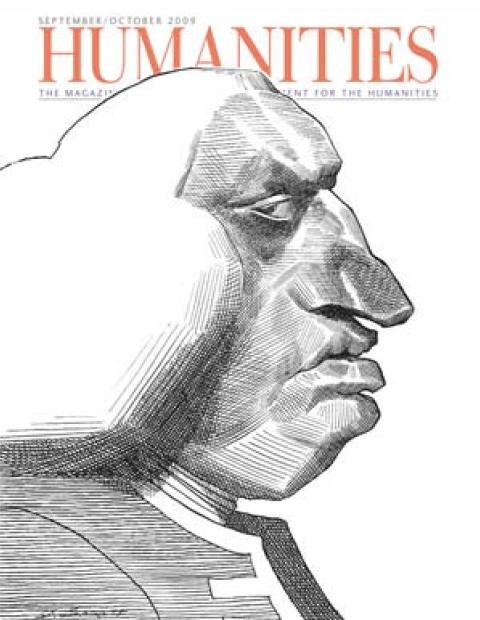“Only connect,” E. M. Forster wrote. But if you are a humanist looking to transmit a message from the far corners of research to a truly public audience, doing so can seem impossible.
Yet Harvard professor and 2003 NEH research fellow Jill Lepore makes it look easy as she commutes from the archive to the public square. The author of numerous well-received books and a New Yorker staff writer, she is a historian who has gained for herself a large readership.
In this issue’s Conversation, Lepore explains it was not a short or easy journey to become the person she is today. She also talks about what it means to be a keeper of the nation’s memory. Lepore seems to have developed a specialty in long-forgotten episodes of early American history, including King Philip’s War in 1675 and the slave trials of New York City in 1741.
From the dim recesses of recent history comes senior writer Meredith Hindley’s essay on the transformation of “advice and consent,” the Constitution’s grant of Senatorial oversight for appointments to the Supreme Court. Inspired by David Kyvig’s NEH-supported study, The Age of Impeachment, Hindley takes a look at how hearings for Supreme Court nominees first became so contentious.
Our cover story, in honor of Samuel Johnson’s three hundredth birthday, scrubs away the patina of legend that has covered over his dictionary. Michael Adams, editor of American Speech and consultant to the American Heritage Dictionary, shows that Johnson’s lexicography not only raised the literary quality of dictionaries but turned the dictionary into its own subgenre of literature.
It was not a plan for a dictionary but for a city that Daniel Burnham and the Commercial Club of Chicago issued one hundred years ago. Chicago had grown at an astonishing pace in the late nineteenth century. Burnham, an architect whose example gave rise to the modern profession of city planning, believed reason and artfulness could introduce order and dignity to the great, chaotic city of the Midwest. The Burnham Plan, as it was known, was propaganda in the best sense of the word.
David Engerman’s essay in this issue is the study of a background figure who influenced others not by the power of his prose or the originality of his thinking but by quietly building institutions. Philip Mosely helped underwrite the intellectual infrastructure behind the American strategy in the Cold War. A new generation of academics would judge harshly the intimacy he encouraged between statesmanship and scholarship.
There is much else in this issue of HUMANITIES, including a look at the delightful inventor Peter Cooper and his high hopes for the school he founded, the Cooper Union in New York City. But don’t let me keep you. Go ahead and connect.

